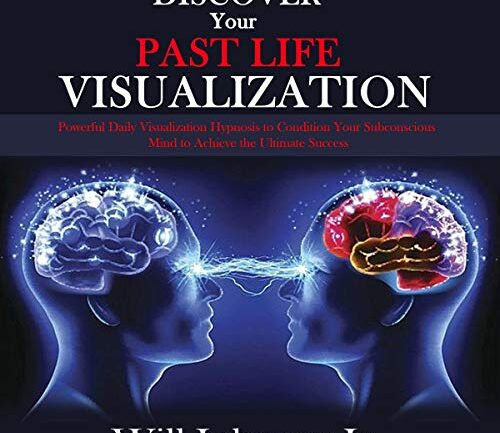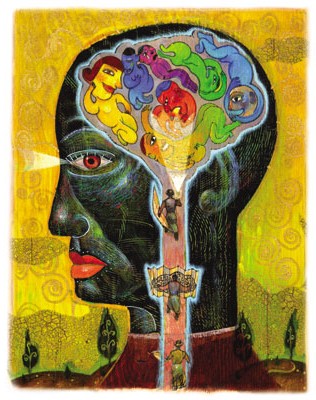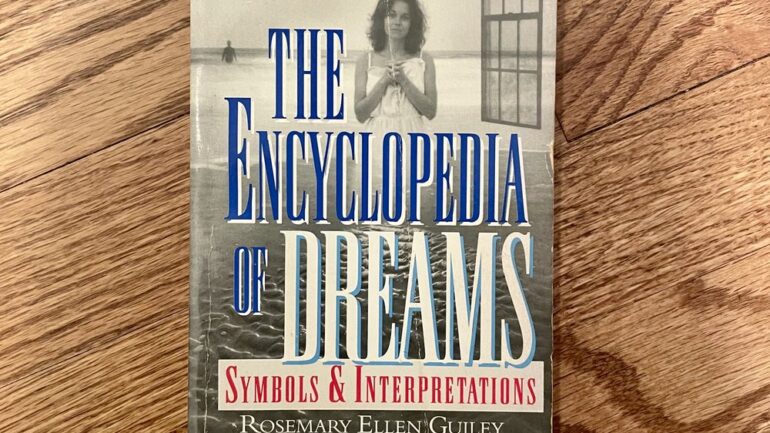In today’s modern society, celebrity culture has become an integral part of our lives. We are bombarded with images, stories, and updates about famous individuals on a daily basis. The allure of celebrity is undeniable, but what lies beneath our fascination with these well-known figures? Why do we dream about famous people? Let’s delve into the depths of this phenomenon and uncover the psychological, societal, and cultural forces that shape our obsession with celebrity culture.
The Psychological Allure of Celebrity Culture
One aspect that contributes to our fascination with celebrities is the phenomenon known as celebrity worship syndrome. This syndrome encapsulates the various levels of admiration and attachment individuals feel toward famous people. From mild interest to obsessive devotion, the need for connection and admiration can drive us to immerse ourselves in the lives of celebrities. As Dr. John Maltby, a psychologist, puts it: “Celebrities provide a source of perceived personal value to those who worship them, offering an escape from everyday life and a sense of belonging.”
Parasocial relationships play a significant role in our celebrity fascination. These one-sided connections are formed when viewers develop feelings of intimacy and attachment to media figures, despite the lack of real-life interaction. Driven by the human need for social interaction, parasocial relationships offer a form of companionship and emotional bonding. In essence, celebrities become companions we’ve never met but still feel connected to.
Escapism and Identification
Celebrity culture offers a realm of escapism from our daily lives. As we scroll through glossy images of opulent lifestyles, our minds are momentarily transported from mundane routines to a world of glamour and luxury. Psychologically, this escapism serves as a coping mechanism, offering a mental break from the pressures and challenges of reality. As Dr. Pamela Rutledge, a media psychologist, notes: “Celebrities provide a safe form of daydreaming, allowing us to escape and experience something beyond our immediate reality.”
Moreover, our fascination with famous individuals is closely tied to identification and self-esteem. We project ourselves onto celebrities, imagining what life would be like in their shoes. This projection can serve as a boost to our self-esteem, allowing us to vicariously experience success and validation. We identify with their triumphs and challenges, finding common ground that reassures us that fame and fortune are attainable.
The Media Machinery: Constructing Celebrity Status
The media plays a pivotal role in shaping our perceptions of celebrities. The cult of personality phenomenon revolves around the media’s ability to craft and maintain specific images of celebrities. Through carefully curated stories, images, and narratives, media outlets mold public perceptions of these figures. As Susan J. Douglas, a media scholar, emphasizes: “The media constructs celebrities as larger-than-life personas, carefully selecting elements that resonate with the audience’s desires and fantasies.”
Celebrities are not just objects of admiration; they are also powerful tools of persuasion. Celebrity endorsement is a prime example of how fame influences consumer behavior. Brands capitalize on the aspirational nature of famous figures, leveraging their status to endorse products and services. This taps into the psychological desire to emulate celebrities, convincing consumers that by using endorsed products, they can capture a slice of the celebrity lifestyle.
Social Media: The Celebrity-Consumer Nexus
The advent of social media has revolutionized celebrity culture, giving rise to a new breed of influencers who engage directly with their audiences. The rise of social media influencers has blurred the line between traditional celebrities and everyday individuals. These digital stars offer a relatable yet glamorous depiction of their lives, sparking a sense of closeness that traditional celebrities may struggle to achieve.
Social media also amplifies parasocial interaction. Through platforms like Instagram and Twitter, fans can directly engage with celebrities and receive acknowledgments, creating a feeling of genuine connection. This interaction enhances fans’ sense of belonging, driving them to invest more deeply in these parasocial relationships. Dr. Jonathan Cohen, a sociologist, highlights: “Social media has democratized the celebrity-fan dynamic, allowing fans to feel seen and heard.”
Celebrity Activism: When Fame Speaks for a Cause
Celebrities have long used their fame as a platform for advocating social and political change. As agents of change, they can draw attention to critical issues and amplify important conversations. The influence of a celebrity’s voice can lead to increased awareness and support for causes that might otherwise go unnoticed. However, the impact of celebrity activism is a double-edged sword, as some view it as performative rather than genuine.
Part of the appeal of celebrity activism lies in the illusion of connection it creates. When a famous individual champions a cause, fans may feel a shared purpose and a sense of alignment with the celebrity’s values. This illusion of connection can foster a sense of community and motivate fans to participate in social change efforts. Yet, it’s crucial to distinguish between meaningful activism and mere token gestures, reminding ourselves that true change requires sustained commitment.
Dark Side of Celebrity Culture
The price of fame is not without its burdens. Invasion of privacy is a persistent challenge for celebrities, with the media prying into their personal lives and exposing their vulnerabilities. This invasion can lead to emotional distress, eroding the boundary between the public and private spheres. As actress Jennifer Lawrence once remarked: “We just get used to this abusive, awful, violating way of existing.” The constant scrutiny can take a toll on mental well-being.
Celebrity culture also perpetuates unrealistic standards of beauty and appearance. Media images often present a polished, flawless version of celebrities, setting unattainable ideals. This perpetuates body image issues and self-esteem challenges among individuals who compare themselves to these unrealistic standards. Social media’s emphasis on physical appearance further exacerbates these concerns, highlighting the need for a more balanced portrayal of celebrity lives.
Evolution of Celebrity: Historical and Cultural Perspectives
The fascination with fame is not a new phenomenon. Ancient origins of celebrity can be traced to historical figures like Cleopatra and Julius Caesar, who achieved legendary status. These figures continue to captivate our imagination across centuries, demonstrating the timeless allure of celebrity culture. The parallels between past idolization and modern celebrity worship reveal that this fascination transcends time.
Cultural variations in celebrity worship offer insights into how different societies approach fame and idolization. The ways celebrities are revered and the traits that are admired vary across cultures. Globalization has introduced celebrities from different corners of the world into our lives, leading to cross-cultural appeal and expanding the definition of celebrity. The universality of celebrity culture underscores its deep-rooted significance in human psychology.
Celebrity’s Timeless Allure: Future Implications
Looking ahead, technological advancements hold the potential to transform our engagement with celebrity culture. The emergence of virtual reality and AI technologies could enable hyper-realistic fan experiences, allowing individuals to interact with their favorite celebrities in unprecedented ways. However, these advancements raise ethical questions, particularly regarding the digital resurrection of deceased celebrities. The line between honoring their legacy and exploiting their image becomes increasingly complex.
As society’s values continue to evolve, so too will the nature of celebrity culture. The enduring allure of fame prompts us to consider how future generations will perceive and engage with celebrities. As we navigate the positives and negatives of this phenomenon, it’s essential to reflect on the role of celebrity culture in shaping our identities, aspirations, and collective consciousness.
Conclusion
Our dreams about famous people are a reflection of our complex relationship with celebrity culture. The psychological allure, the escapism, and the cultural constructs that underpin our fascination provide a fascinating lens through which we can better understand ourselves and society. As we navigate the world of celebrity, let us not only marvel at the glamorous façade but also critically exa browse around here mine the deeper motivations and implications that lie beneath.
Starstruck Minds: Exploring the Fascination with Celebrity Culture

Welcome to my website! My name is Patrick Petherick, and I am a professional Emotional Dream Coach. I am passionate about helping individuals understand the profound symbolism and meaning behind their dreams, and guiding them towards emotional healing and personal growth. Check it





